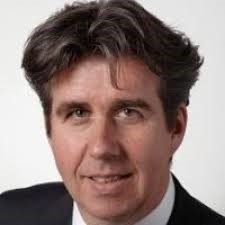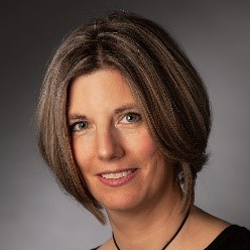
by Rens van Loon and Angel Buster
Rens van Loon is Professor, Dialogical Leadership at the School of Humanities and Digital Sciences Tilburg University, Netherlands. Angel Buster is PhD Candidate at Tilburg University, Netherlands
28 May 2020
Share:
“A crisis is the message that we’ve overlooked something for a long time. That we have pressed on with our will when it no longer matched our authentic flow. The longer we ignore that flow, the bigger the crisis.” – Eva Pierakkos
In the Netherlands, the fourth of May is Memorial Day of the 75th anniversary of the Second World War casualties. There were several speeches held before empty plazas, as the Coronavirus banned spectators from physically attending the ceremonies; people watched via television, social media, and the internet. One of the speeches was by Arnon Grunberg, a famous Dutch author whose mother survived the atrocity of Auschwitz. Originally from Germany, Grunberg grew up in a family of Jewish immigrants. He appealed to the heart of listeners by speaking straight from his own heart and experience: humans want to know their identity and long for a stable and strong self. For many people it is difficult to be ‘playful’ and flexible with their identity, identifying too strongly with certain positions rather than operating from an awareness that our current self is one out of many possible selves. In his speech, Grunberg proposed that this is why people follow leaders. Leaders fix a solid, often simple, self for everybody, often by creating a static image of the Other, the Stranger, the Enemy – this might be Jewish, Roma or whatever other people.
After describing horrific cruelties of humans against humans in the camps during World War II (which we will leave out here), he made his point. “A Dutch citizen in Auschwitz was commanded to pour kerosene over living women and children, and this act started with words, speeches of politicians” (translated by the authors from the original speech as published in the Dutch paper Volkskrant Mai 5, page V4-6, 2020). Words matter. They can create a worldview, manipulate thoughts and actions of people in a certain direction, and are often emotionally destabilizing. In a previous reflection, Kathryn Tyler Scott referred to the important role of character. The man who got the order to pour the kerosene refused, he said NO, (and they killed him instantaneously). His character prevented him from following orders, which were against his values.
In an internal dialogue between angst and courage, between following and leading, he took – in a split second – a decision, not to obey. How are some people able to do this in such a situation? How do we cultivate the capacity to choose the right thing, the morally good thing, despite external pressure towards the opposite, especially in extreme circumstances?
For many people it is difficult to be 'playful' and flexible with their identity, identifying too strongly with certain positions rather than operating from an awareness that our current self is one out of many possible selves.
Here we touch upon what it means to be in dialogue at the edge of crisis, our core reflection for leaders and people in crisis. We invite you to explore the role of your spiritual sources in times of crisis: What is your spiritual source? Is there a deeper source from which you act, feel, and think which has formed in your character, your conscience? How do you cultivate it? Is it a source of your action or inaction? What is the deeper, more stable layer in yourself, from which you act? How do you develop your character so that in times of crisis, such as the current pandemic, a stable and solid self can be brought to life, one that is capable of adapting to the situation?
We observe in current times that in the media, people are primarily influenced to rationally understand the danger of the COVID-19 virus and to act accordingly (social distancing, etcetera). We, however, observe the importance of attending to and noticing other layers in life, which become much more noticeable during such a crisis: What is the value of life? My life? Your life? Our life as humankind on Earth? For doctors and nurses this is a particularly important question, as they might become a victim of their own goodness for others, the patients.
A leader’s strength and power lie in his or her ability to influence people with words, relationally co-constructing a worldview, which anchors and activates this spiritual source automatically in others in times of crisis. That happens through education, religion, a political view, or a spiritual tradition. If there is such an underpinning, it can help to form our character.
Essentially, in a dialogical self you create space for reflection between these different aspects of yourself. Heifetz calls this “finding a sanctuary,” a place where one can hear oneself think. What we should do, and can do, is support others to develop such a place through dialogue, meditation, prayer, by teaching the mindset and skills needed to cultivate an inner, reflective sanctuary for silence. Such a place makes it possible that, despite the turbulence of the world around us, one can still maintain a highly consistent and congruent way of behaving non-verbally, can give clear reasoning and also rely on intuitions adapted to the external situation.
As we have seen from literature and experience, critically important for spiritual leadership, is the degree of internal locus of control people have. Spirituality refers to the sacred, the secret, relating to an internal source, from which a centered level of stability for action might follow. In times of crisis, the locus of control needs to be internally stable to externally communicate a sense of calm, a clarity, a sense of direction and “knowing,” despite the overwhelming presence of the unknown. But for this to become possible in a crisis, we must train our children, our generations, and ourselves how to cultivate this source, otherwise we risk becoming destabilized by an external event. This is visible in how the media places the Coronavirus in an unnecessary position of power as seen in a BBC headline of May 14th “Virus causing global mental distress, says UN.” How can a virus cause global mental distress if it is always a choice of how we respond to both internal and external experiences? This illustrates the criticality of words and how they can take control and make us feel powerless, if we choose.
Looked at through the lens of dialogue and self: internal dialogue, reflection, and action – reflection as an internal action – seems critical for successful leadership in times of crisis, tapping from spiritual sources. A crucial success factor is that this inner spiritual source is habitually cultivated through regular attention (reflection, meditation, prayer). This starts yesterday, now.
Grunberg ended his speech by urging politicians, presidents, and commissioners to give the right example when they speak publicly and privately. “Especially in these secularized times government members and ministers have a special responsibility to give a good example, to not allow their words to be toxic/poisonous, and to always keep in mind that the State is necessary but also a potential evil that with careless naturalness can crush population groups.” As the COVID-19 virus does without words. That is why humans need a vaccine to physically survive the virus, and we need a transcendent source to spiritually survive the existential crisis evoked by it.

Rens van Loon is a professor of Dialogical Leadership at the School of Humanities and Digital Sciences, Tilburg University. Rens’ work extends the concepts of Dialogical Self Theory to the leadership of organizations, drawing on social constructionism and leadership frameworks. His main book is Creating Organizational Value through Dialogical Leadership. Boiling Rice in Still Water (2017).

Angel Buster (MSc, MA) is a PhD Candidate at Tilburg University focused on Identity Challenges in Family Businesses using a Dialogical Approach. She has more than 15 years’ experience in the field of personal change and leadership development. Currently, she works as a leadership consultant and therapist where, in both roles, she helps free the system(s) from sedimented positions in order to improve physical, mental, emotional, and spiritual and wellbeing.

